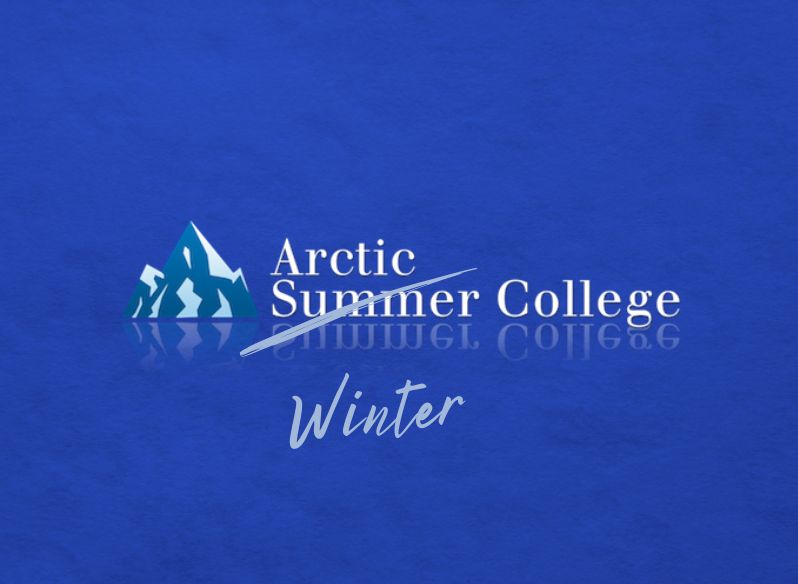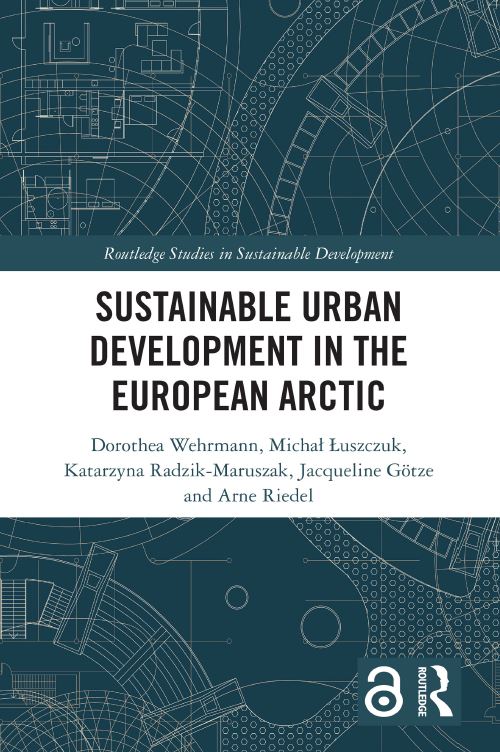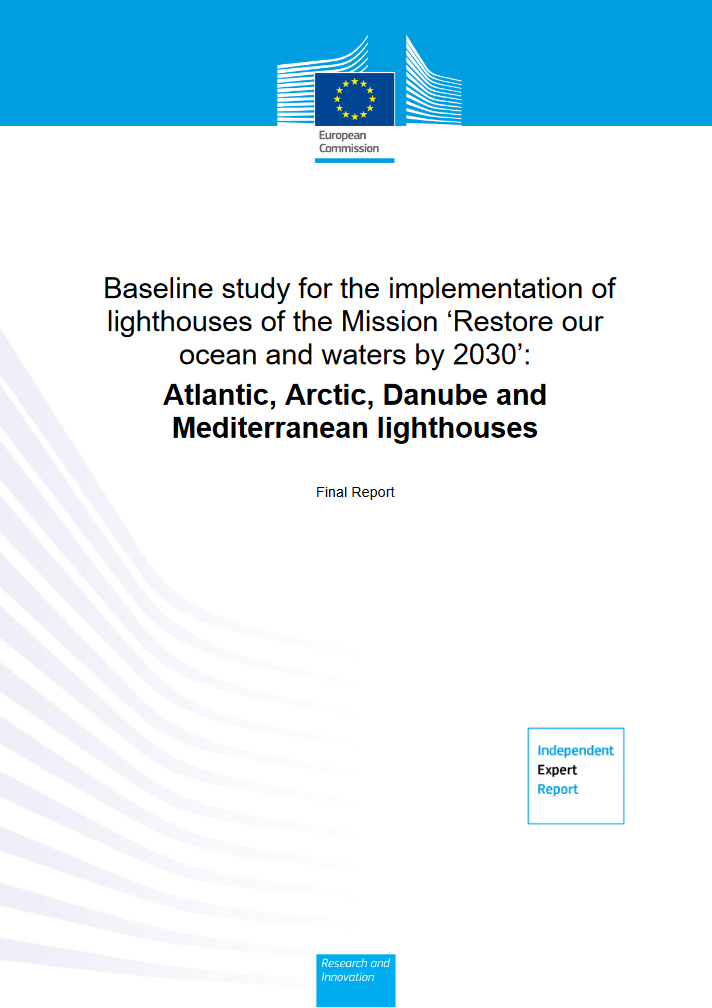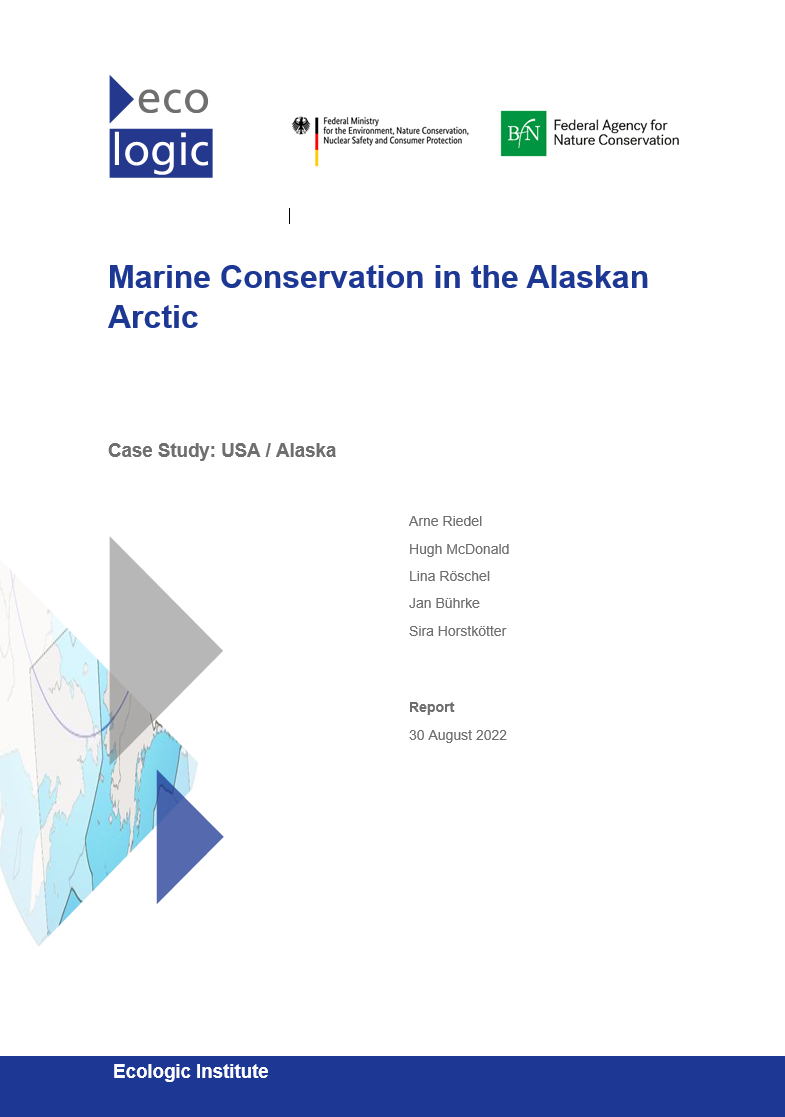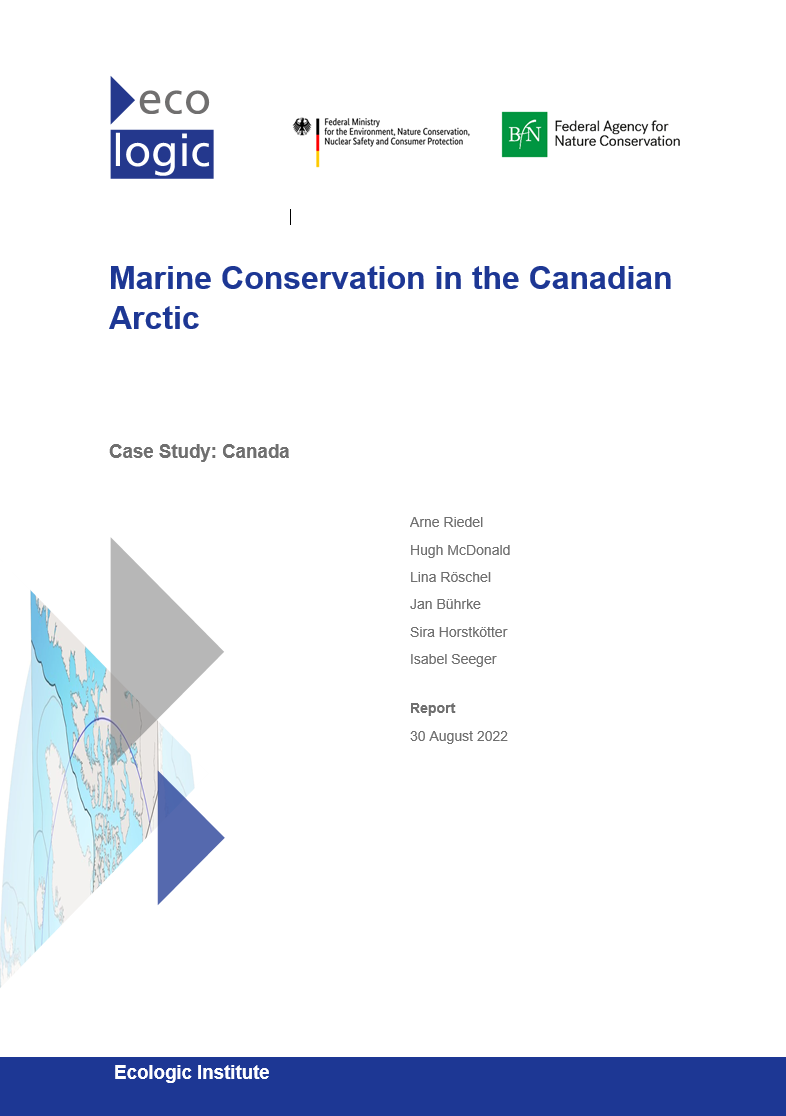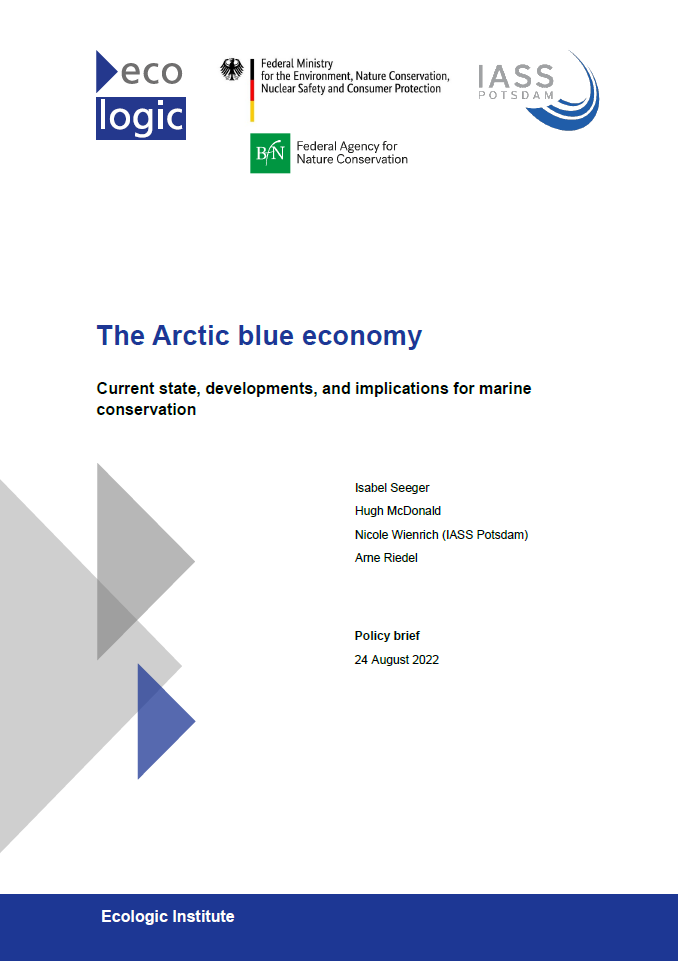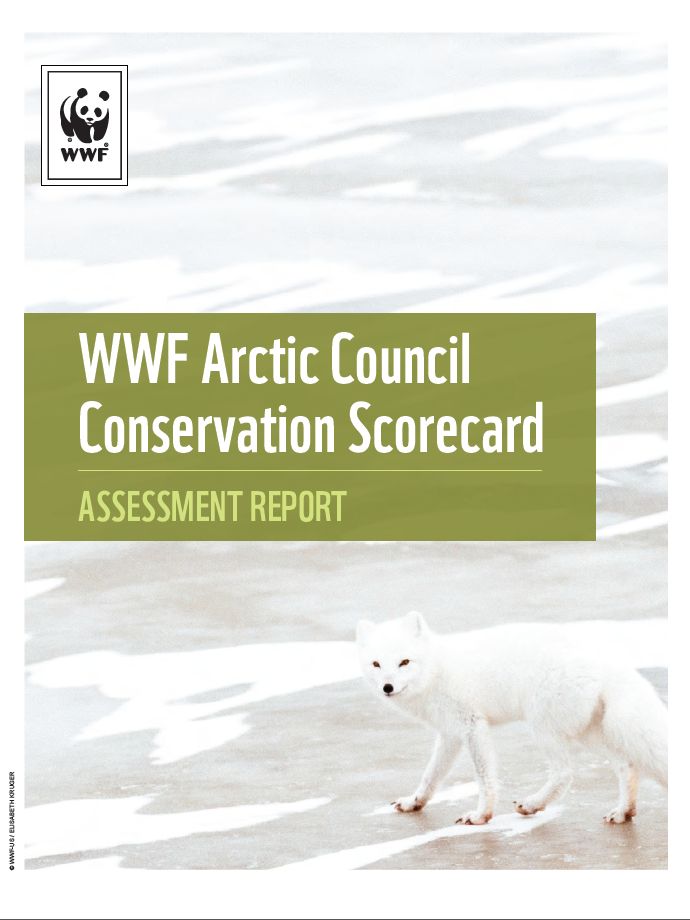Arctic
The Arctic is home to unique habitats that are severely threatened by the effects of climate change. The increasing loss of sea ice allows parts of the Arctic to be used more intensively than ever before, especially to pursue economic opportunities such as oil, gas, and mineral exploitation and commercial shipping, fishing, and tourism.
Some of these activities threaten the rights of indigenous and local communities and increase pressures on the region's ecosystems critically, whereas others might allow for sustainable local development in certain areas. Our work requires interdisciplinary research and a cross-sectoral understanding of the dynamics at hand, including the impacts of transboundary pollution, invasive species, and underwater noise as well as protection through different management tools such as marine protected areas.
Ecologic Institute provides analyses of international, regional, and national governance frameworks with relevance for the Arctic and develops recommendations to support sustainable environmental policy and governance for the region. Our experts draw particularly on their experiences of ocean and marine governance as well as on their legal expertise to cover all relevant pressures on Arctic habitats.
Ecologic Institute is also represented in national fora such as the German Arctic Dialogue. It also fosters transdisciplinary exchange, including with its Arctic Summer College for young professionals for a decade.
Contact
Selected Projects for Arctic
Dynamic Protection and Adaptive Management – Arctic marine protection facing climate change (DynArc)
- Duration
-
-
- Funding
-
Federal Agency for Nature Conservation (BfN), Germany
Year-round EcoSystem Study on Svalbard (YESSS)
- Duration
-
-
- Funding
-
Federal Ministry of Education and Research (BMBF), Germany
Arctic Environment
Pan-Arctic Network of Marine Protected Areas (Ark-MPA)
- Duration
-
-
- Funding
-
Federal Agency for Nature Conservation (BfN), Germany
WWF Arctic Council Conservation Scorecard II – 2019 edition
- Duration
-
-
- Funding
-
World Wide Fund For Nature (WWF), Canada
WWF Arctic Council Scorecard – Methodology and Data Collection
- Duration
-
-
- Funding
-
World Wide Fund For Nature (WWF), Canada
Arctic Policies
Environmental Guidelines for a German Arctic Policy
- Duration
-
-
- Funding
-
German Environment Agency (UBA), Germany
Arctic Footprint and Policy Assessment
- Duration
-
-
- Funding
-
European Commission, Directorate-General Environment (DG Environment), International
Transatlantic Policy Options for Supporting Adaptations in the Marine Arctic (Arctic TRANSFORM)
- Duration
-
-
- Funding
-
European Commission, Directorate-General for External Relations (DG Relex), International
People in the Arctic
Sustainable Urban Development in the European Arctic (SUDEA)
- Duration
-
-
- Funding
-
German Development Institute (DIE), Germany
Ethics Advisor for the JUSTNORTH Consortium
- Duration
-
-
- Funding
-
European Commission, Research Executive Agency (REA), International
Ethics Advisor for the "Arctic Research Icebreaker Consortium" (ARICE)
- Duration
-
-
- Funding
-
Alfred Wegener Institute (AWI), Germany
Arctic Knowledge and Networks
The EU4Ocean Coalition for Ocean Literacy
- Duration
-
-
- Funding
-
European Commission Directorate-General for Maritime Affairs and Fisheries (DG Maritime Affairs and Fisherie), International
Arctic Winter College 2021
- Duration
-
-
- Funding
Arctic Summer College 2017
- Duration
-
-
- Funding
-
Konrad Adenauer Stiftung (KAS), Germany
Selected Publications for Arctic
Edited Volumes
Wehrmann, D., Luszczuk, M., Radzik-Maruszak, K., Götze, J. & Riedel, A. (2025). Sustainable Urban Development in the European Arctic. Routledge.
Wehrmann, D., Łuszczuk, M., Radzik-Maruszak, K., Riedel, A., Götze, J. (2022). Transnational Cities Alliances and Their Role in Policy-Making in Sustainable Urban Development in the European Arctic. In: Sellheim, N., Menezes, D.R. (eds) Non-state Actors in the Arctic Region. Springer Polar Sciences. Springer, Cham. https://doi.org/10.1007/978-3-031-12459-4_6
O'Donnell, Brendan; Max Gruenig; Arne Riedel (Eds.) 2018: Arctic Summer College Yearbook. An Interdisciplinary Look into Arctic Sustainable Development. 1st ed. Springer International Publishing Switzerland.
Tedsen, Elizabeth, Sandra Cavalieri, and R. Andreas Kraemer (eds.) 2014: Arctic Marine Governance. Opportunities for Transatlantic Cooperation. Heidelberg: Springer.
Recent Articles
Michał Łuszczuk et al. 2022: Governability of Regional Challenges: The Arctic Development Paradox. Politics and Governance 2022, Volume 10, Issue 3, Pages 29–40
https://doi.org/10.17645/pag.v10i3.5341.
Project Publications
European Commission, Directorate-General for Research and Innovation, Alao Chanou, Z., McColgan, O., Berbel, J., et al., Baseline study for the implementation of lighthouses of the Mission 'Restore our ocean and waters by 2030': Atlantic, Arctic, Danube and Mediterranean lighthouses, Publications Office of the European Union, 2023, https://data.europa.eu/doi/10.2777/34856
Riedel, Arne, Hugh McDonald, Lina Röschel, Jan Bührke, Sira Horstkötter (2022). Marine Conservation in the Alaskan Arctic. Ecologic Institute, Berlin.
Riedel, Arne, Hugh McDonald, Lina Röschel, Jan Bührke, Sira Horstkötter, and Isabel Seeger (2022). Marine Conservation in the Canadian Arctic. Ecologic Institute, Berlin.
Seeger, Isabel, Hugh McDonald, Nicole Wienrich and Arne Riedel (2022): The Arctic blue economy: current state, developments, and implications for marine conservation. Ecologic Institute, Berlin.
Riedel, A., Bach, I., Abhold, K., Hoffmann, H., Stephen, K., Schopmans, H., 2020: Ökologisch nachhaltige Nutzung mit hohen Umweltstandards in der Arktis – Umweltleitlinien deutscher Arktispolitik. Abschlussbericht. Umweltbundesamt, Dessau-Roßlau.
WWF Arctic Programme (2017): WWF Arctic Council Conservation Scorecard (Rep.). Ottawa, ON.
Selected Events for Arctic
Workshop:Navigating Arctic Futures: Adaptive Governance for Resilient Ecosystems and Communities
- Date
-
- Location
- online
Discussion:Dynamic Ocean Management in Arctic Waters – New Dynamic with the BBNJ Agreement?
- Date
-
- Location
- Reykjavik, Iceland
Youth in the Arctic
Discussion:Youth in the Arctic: A Discussion Connecting the Leaders of Tomorrow and Today
- Date
-
- Location
- Reykjavik, Iceland
Climate and the Arctic
Digital Event:100 Days In: COP21 and the Arctic's Future – An Era of Energy Transition
- Date
-
- Location
- Berlin, Germany
Selected Presentations for Arctic
Chairing:26th Arctic Dialogue
- Date
-
- Location
- Berlin, Germany
Speech:25th Arctic Dialogue
- Date
-
- Location
- Potsdam, Germany
Panel discussion:Founding Meeting of the DGP Polar Policy Working Group
- Date
-
-
- Location
- Berlin, Germany
Panel discussion:Governance Potentials and Challenges for the Polar Regions, Oceans and Outer Space
- Date
-
-
- Location
- Berlin, Germany
Speech:24th Arctic Dialogue
- Date
-
- Location
- Berlin, Germany
Speech:23rd Arctic Dialogue
- Date
-
- Location
- Berlin, Germany







